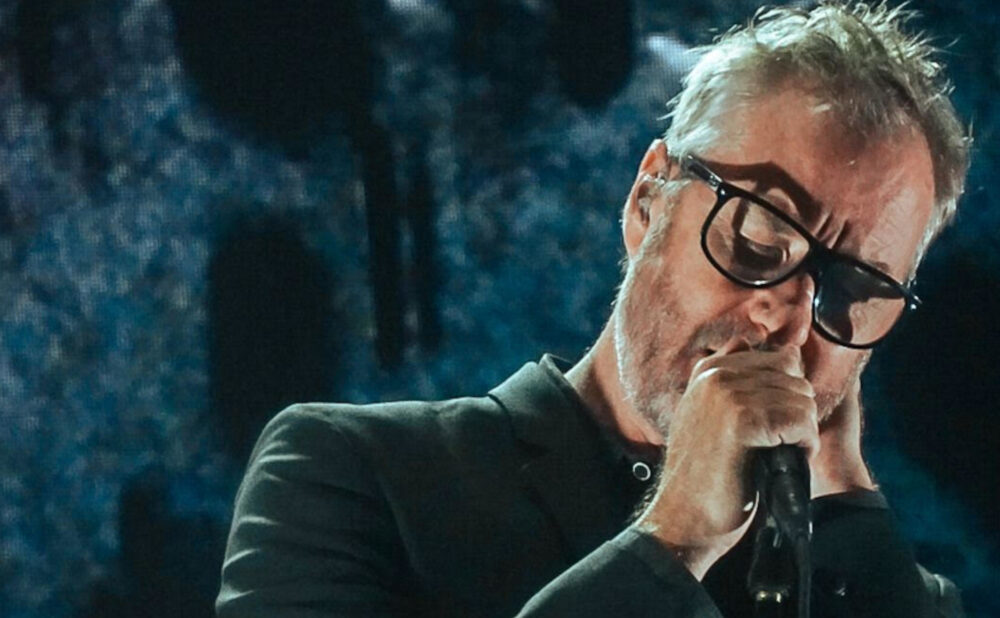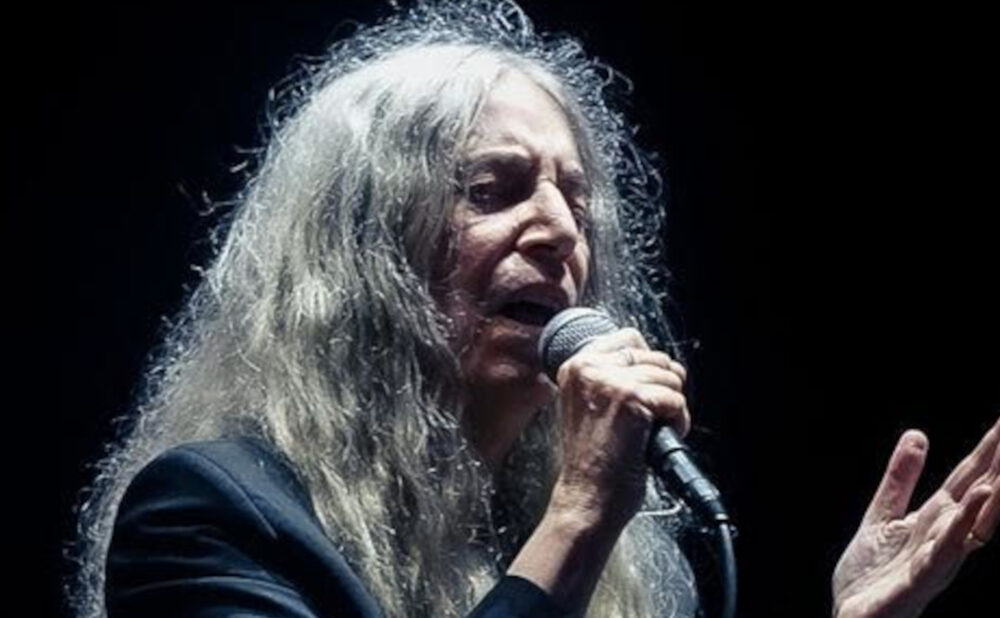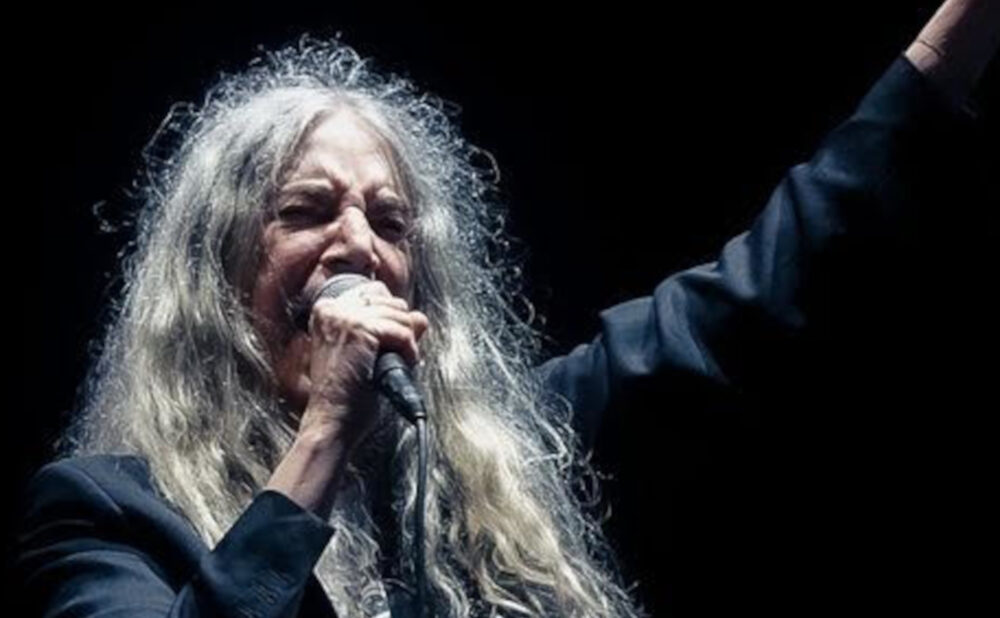The National are Masters of Anthemic Melancholy
Patti Smith is a punk powerhouse opener
Where: Budweiser Stage, Toronto
When: Sun., Aug. 20
Vibe: Self-reflecting with 16,000 of your closest friends
Rating: NNNN (out of 5)
Highlight: Soul-deep singalongs to About Today, Mr. November and Vanderlyle Crybaby Geeks
IF YOU THINK that brooding is a solo sport, you haven’t seen The National in concert. On Sunday night at Toronto’s Budweiser Stage, the “sad dads” of indie rock move a packed crowd to elation, proving that melancholia doesn’t inhibit moments of collective stadium rock. When done right, it fuels them.
The quintet, expanded to a seven-piece touring band, is wrapping up the second leg of the tour for the latest album, First Two Pages of Frankenstein. But before they even grace the stage, fans witness a moment of music history. In a lineup worthy of a double-take, Patti Smith is featured as a “special guest.”
“We can’t believe it,” the band later tells the crowd about sharing the stage with punk’s poet laureate.
It is pretty unbelievable to have Patti Smith open for you, but do The National’s fans care? Smith and her band take the stage to a nearly half-empty venue. Reception warms up and more seats are filled by set’s end, but that doesn’t make up for the many concertgoers who choose to get a slice of pizza and an overpriced tall can during Dancing Barefoot. Or for the ones who loudly exchange set list wishes for The National while Smith tells a story about seeing Neil Young perform in New York City 50 years ago. Cue the shushing.
For those eager to give Smith their attention, the payback is tenfold. Over the course of an hour-long set, the 76-year-old rock poet delivers every word with electrifying conviction. Opening with People Have the Power, her message to mobilize is as clear as it has ever been. She calls for attendees to come together, unite and change the world. She dedicates songs “to life” for being “the best thing that we have.” She asks the crowd to raise their hands and feel the creativity and freedom coursing through their bodies.
These are all calls to action that might sound canned or performative coming from any other artist, but not from Smith. She means it. While covering Neil Young’s After the Gold Rush, she starts to cry in the final verse. The duality of Patti Smith has always been an effortless coolness accompanied by a heart-on-her-sleeve earnestness.
Just before her last song, the Robert Mapplethorpe-photographed album cover for Horses fills the backdrop and the crowd erupts. Smith leaves fans with a thundering rendition of the iconoclastic Gloria and more than earns her standing ovation.
The divide between people who don’t know a single Patti Smith song and those who hang on her every word speaks to the multi-generational make-up of The National’s fan base. By the time frontman Matt Berninger’s signature baritone pierces through the crowd at 8:50 pm, that difference can be observed in the way fans experience the show: some with their feet up and eyes closed, others jumping with their hands in the air. Self-proclaimed “sad dads” (no really, they are wearing band shirts with “SAD DAD” emblazoned on them) discretely but intently mouth every lyric next to groups of Gen Z-ers desperately reaching towards the stage. There are many ways to lean into the melancholia.
The master of melancholy himself, Matt Berninger, presides over the crowd with a sort of professorial command. Towering over his fans at 6’3″, he acts out every word like a one-man play. For an artist whose lyrics are so interior and abstract, they seem to explode out of him in bursts and fits. He white-knuckles his hair into a fist, throws his hands in the air in dejection, and paces left to right and back again. He leans over the barricade and falls into the crowd. He sings, “I’m evil, I was afraid I’d eat your brains” (Conversation 16) while fans hold him, grinning from ear to ear.
The fact that The National have been together for over 20 years and their frontman still uses a wired microphone feels apt for their ethos. It’s also impractical for a performer who makes a point of walking around the venue, leaving a trail of stagehands trying to frantically untangle the cord in his wake. During Terrible Love, he takes a tour through the stands, stopping to interact with the crowd and pocketing fan letters while the cord stretches to its limit. He might walk all the way to the back lawn if the cord was long enough.
The National are a band that you might typically experience alone through a pair of headphones. Their musings on micro/macro anxieties, lost potential, self-sabotage and the gradual dissolution of relationships don’t necessarily lend themselves to arena rock in an easy-bake sort of way. But they seem to scratch an itch in people’s souls that is hard to reach. This — added to the Dessner brothers’ explosive guitar playing and the Devendorf brothers grounding the rhythm — enables the band to command tens of thousands of people like any chart-topping pop star.
Their five-song encore wraps up with the expected show closer, Vanderlyle Crybaby Geeks. The band steps forward, Berninger puts down his mic and he plays conductor to a crowd of 16,000 voices. As the final line of the song rings out, “I’ll explain everything to the geeks,” they are preaching to the literal choir. The National is a musical embodiment of “if you know you know,” and some things can’t be explained.










